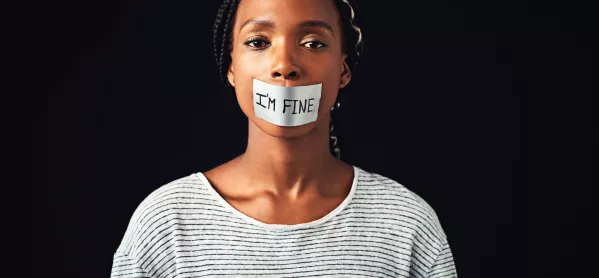How podcasts have helped to give our students a voice

In the past 12 months, millions of teachers and students have moved to online learning, most for the first time, to battle a host of new challenges from IT skills to connectivity problems and self-motivation. But as we move forward, there is also space to take positives from the lessons of the lockdown and to ensure that the next year is better than the last.
Last autumn, I organised a series of podcasts with students and alumni of City and Islington College sixth form in London. The rationale was to give young people the space to discuss their experiences since the college’s closure in March. The project involved students writing questions, hosting episodes and creating a trusting and participatory atmosphere for their peers to share and reflect.
Amidst the bustle of daily college life, a packed curriculum and the stress of the pandemic, there is a lack of opportunity for genuine discussion, reflection and engagement. The podcast and its response provides a window into the student experience, which we have found to be valuable for staff and students alike. From this, there is real value in creating and facilitating spaces for students to talk and be heard on their own terms, and for learning to happen unencumbered by the inevitable trappings of authority and hierarchy that exist in the classroom.
Teaching in FE: The stresses of teaching outside your comfort zone
Background: Three factors that amplify the impact of lost learning
Student voice: How colleges can support Year 13s this year
Some current and former Year 13 students feel ignored and let down by the government. The forfeit of their usual rites of passage at the end of last year left many without proper closure on their college experience. For Year 12s, the strangeness of starting college online has left some more comfortable talking to peers through a screen. There is also some genuine optimism, with students focusing on self-improvement, and one of the alumni who we interviewed in our third podcast reflected on the value of learning for its own sake.
Podcasts and student wellbeing at college
Distance learning, then, has provided a complicated experience for students. Where some have benefited, others have lagged behind. Our project as a whole shows that students need to be handled with care and treated with compassion, and that their wellbeing needs to be at the heart of our decision-making. It is clear that students feel themselves to be passive recipients of decisions that have had (and will continue to have) significant and detrimental effects on their lives. At the time of writing, there is still no official guidance on how Year 13s will be assessed - although the college has responded to the Department for Education consultation on it - and this uncertainty creates confusion, anxiety and alienation.
The aim now is to consolidate our work and to make the most of the situation. Listening to students, I am reminded of the many possible rejoinders that may smoothen things out at every level. In classrooms, this means encouraging and facilitating opportunities for active engagement, whether by insisting upon use of microphones or emphasising the value of the breakout rooms. Podcast extracts have been embedded within our tutorial programme, prompting wider student discussion and encouraging more to get involved with enrichment and wider college life.
At a departmental level, it means a more consultative approach with students, not just through anonymous surveys and polls. For example, setting up staff-student working groups and asking students for input into schemes of work, as well as ideas on what does and does not work well in the virtual classroom. We are all navigating our way through unknown territory and students are very well-placed to provide detailed, constructive feedback to help develop better online practice. As well as the benefits to teaching, this kind of approach might go some way towards giving students a sense of agency and control over their working lives.
I had been working with my students on the podcast for some time before the pandemic. But publishing remotely cast a new light on the role that digital content could have. There are plenty of exciting opportunities within and beyond distance learning to integrate podcasting into more common practice. This might be students debating a divisive issue, exploring new angles in cross-faculty collaboration or interviewing an outside expert whose thoughts will benefit the broader student community. Similarly, teachers might want to use the format for on-demand or social media-friendly content delivery, a trend already circulating in some universities.
The current state of education can only be seen as an imposition. Seldom do genuine opportunities for flexibility and innovation align with the demands of the pandemic. However, the sudden change in circumstance also allows us to reflect on current practice and the chance to take from 2020 a better understanding of the student journey. It is increasingly clear that the role of education extends beyond the linear academic process, also moulding well-adjusted, rounded, sociable people who can play to their strengths and overcome their limitations.
I am proud of my students for their commitment to this project and for reminding me that despite all the anxiety and uncertainty, we can still find innovative and fun ways to learn together, while ensuring that giving students a meaningful voice remains at the heart of what we do.
Debbie Bogard is learner enhancement coach at City and Islington College
You need a Tes subscription to read this article
Subscribe now to read this article and get other subscriber-only content:
- Unlimited access to all Tes magazine content
- Exclusive subscriber-only stories
- Award-winning email newsletters
Already a subscriber? Log in
topics in this article



